At Devon, Calvin is a jumper and a survivor
Listen-
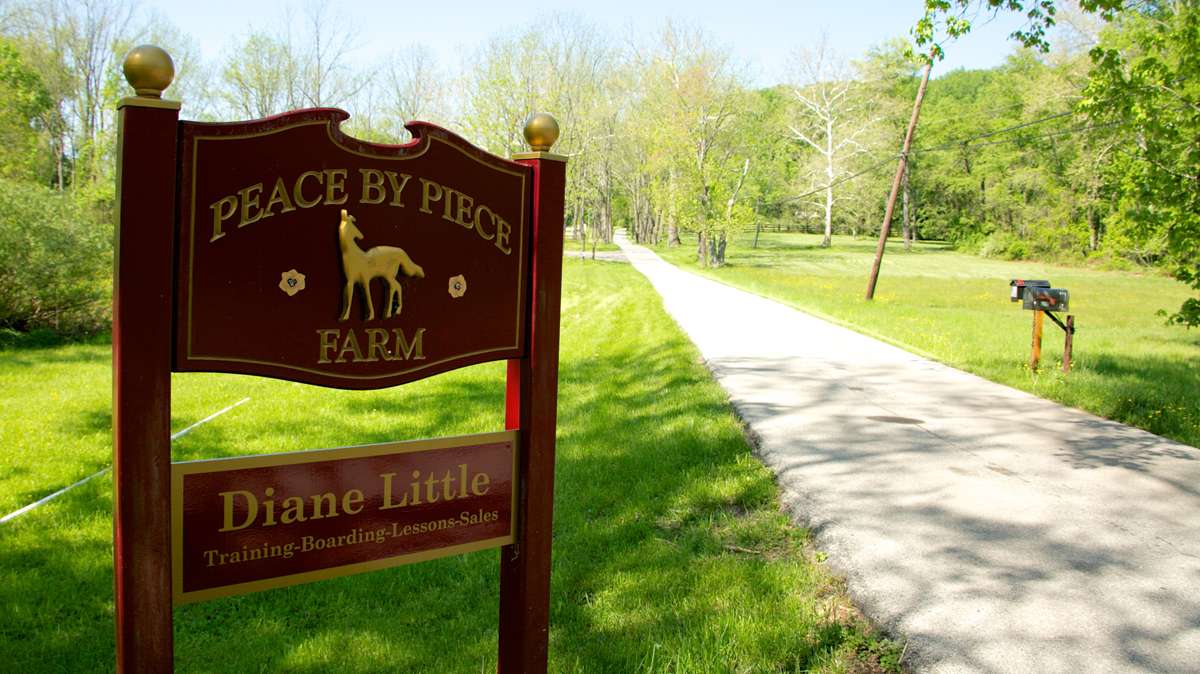
-
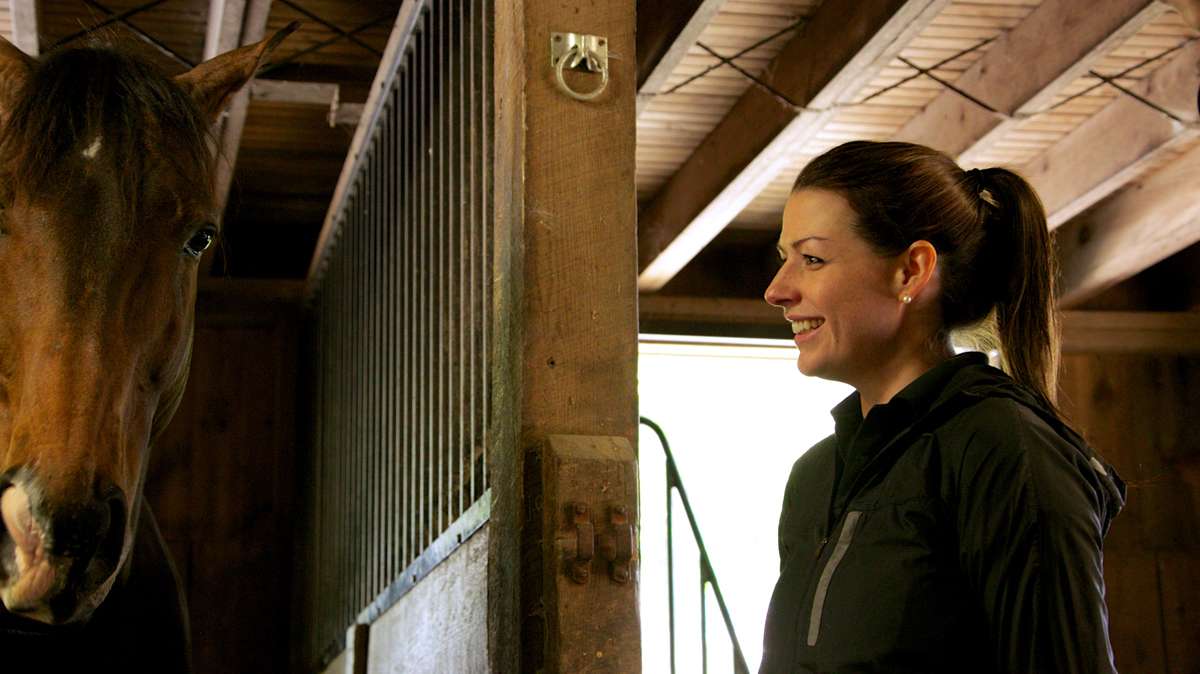
-
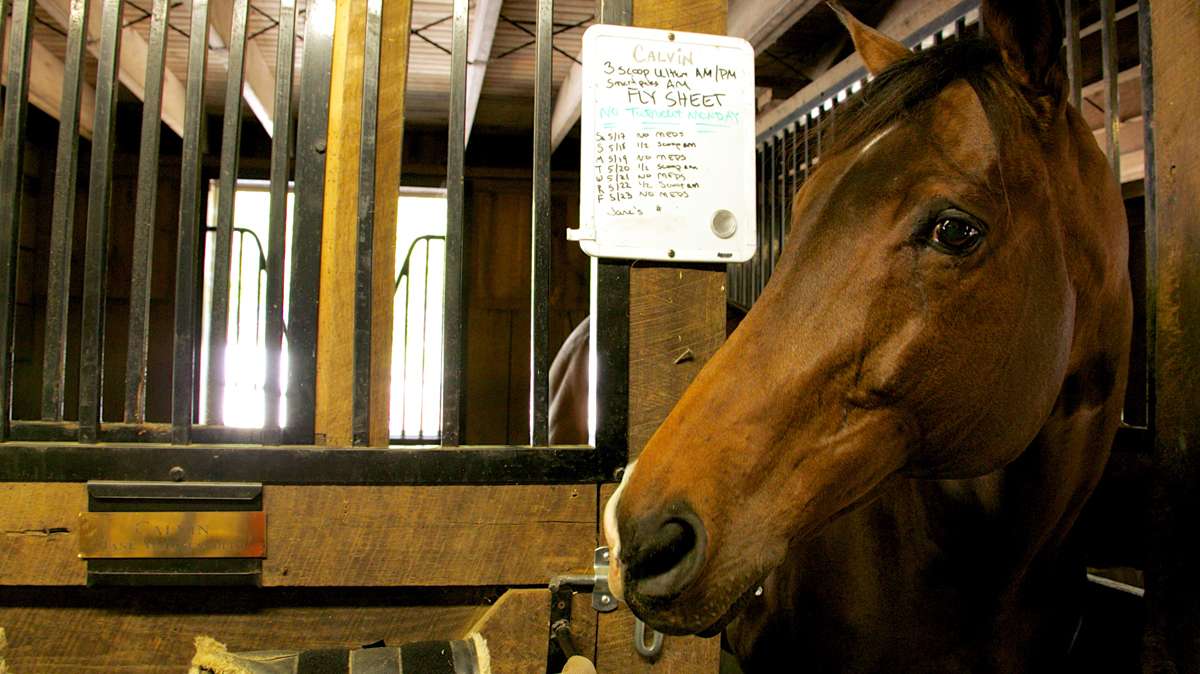
Calvin pops his head outside of his stall where a white board lists his rigorous medication schedule. (Nathaniel Hamilton/for NewsWorks)
-
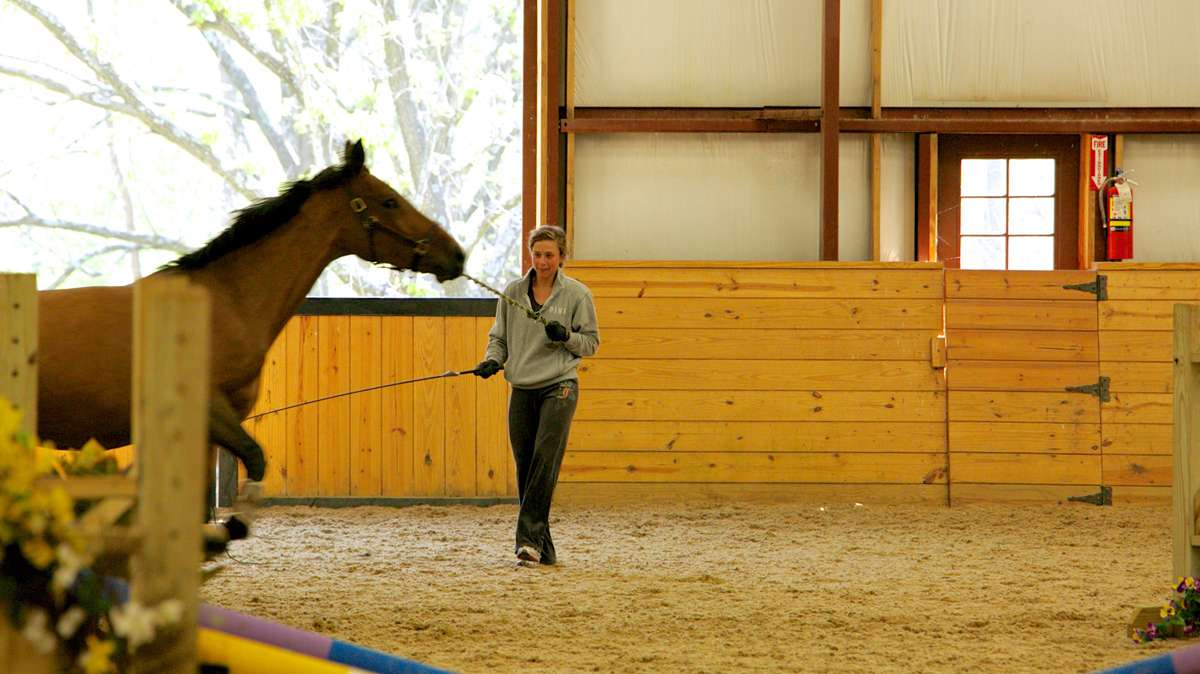
-

-

-
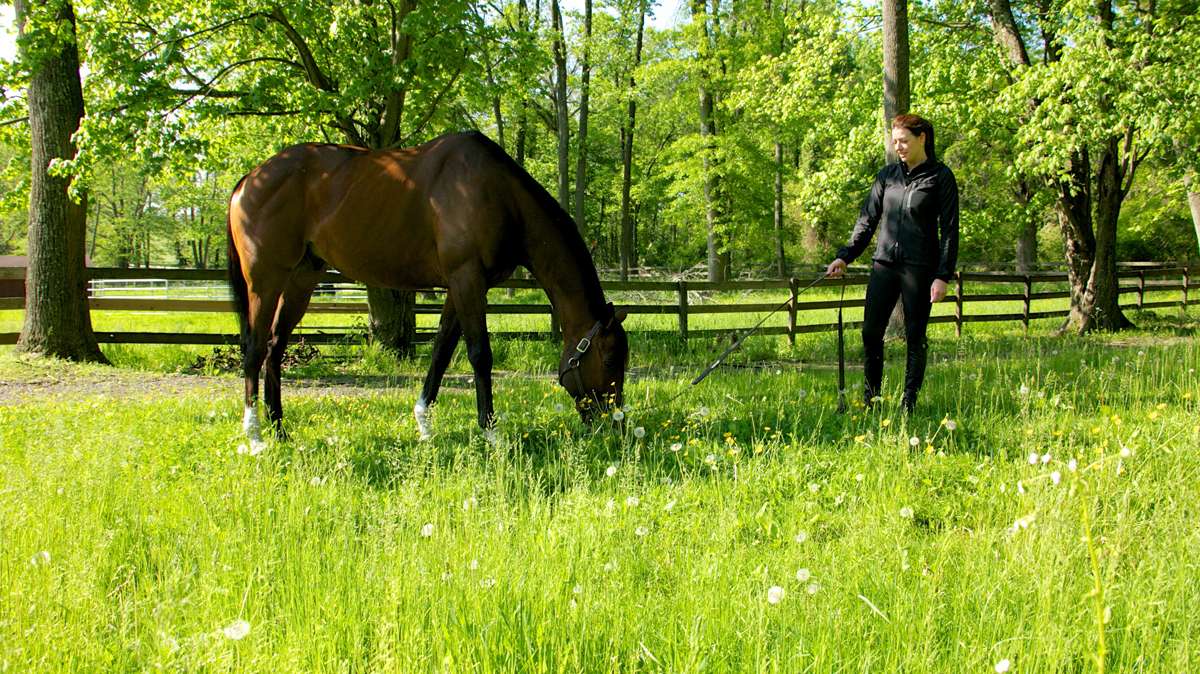
-
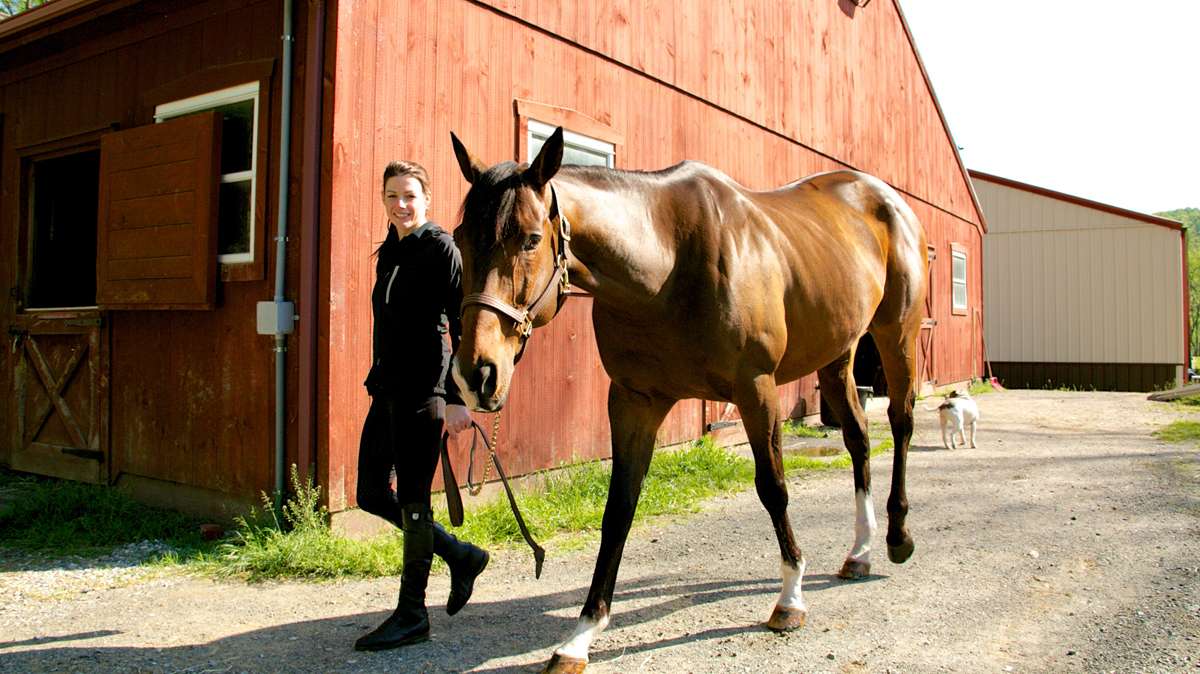
-
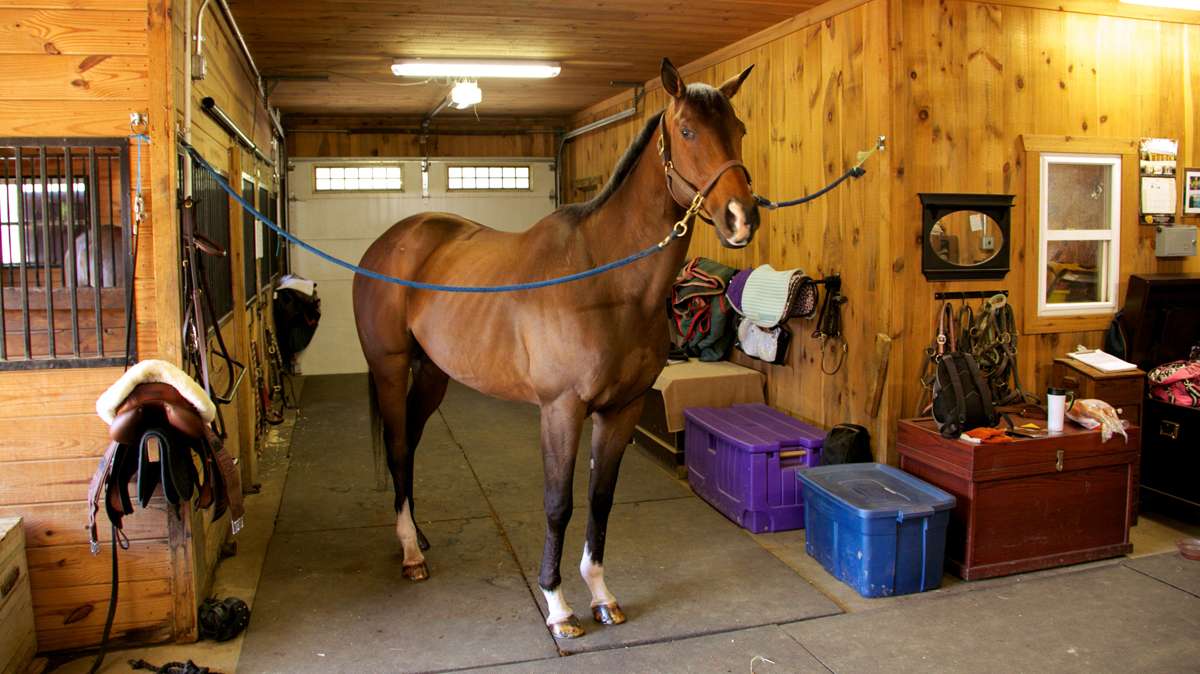
-

-

-
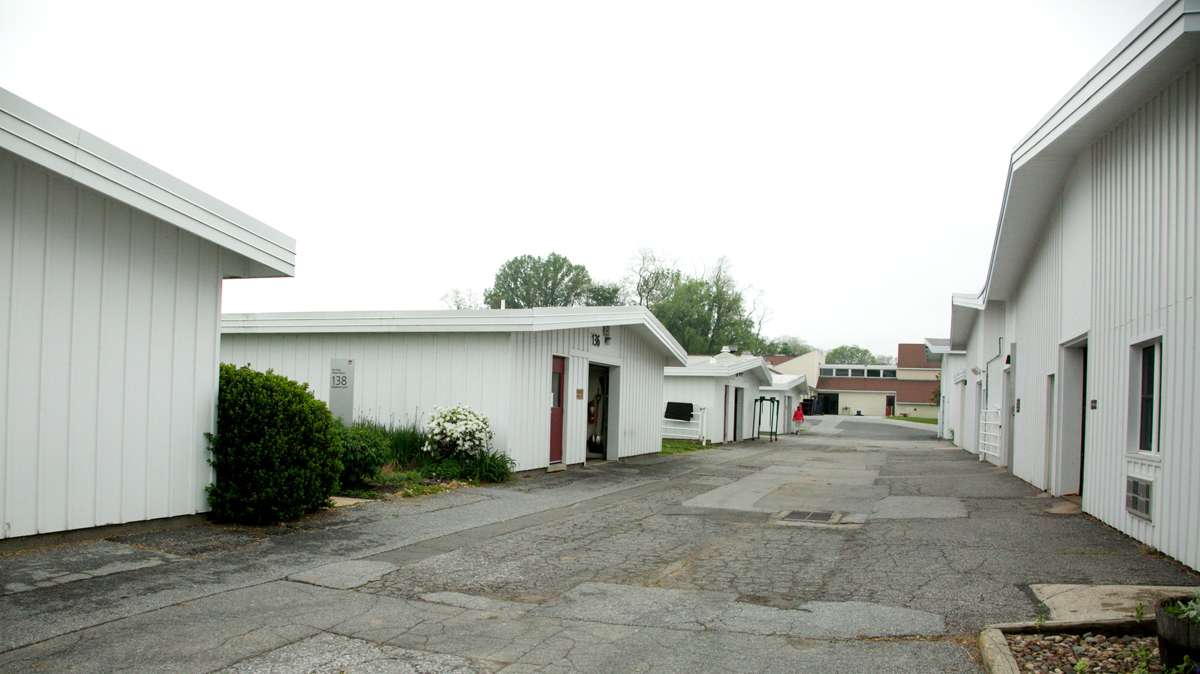
-
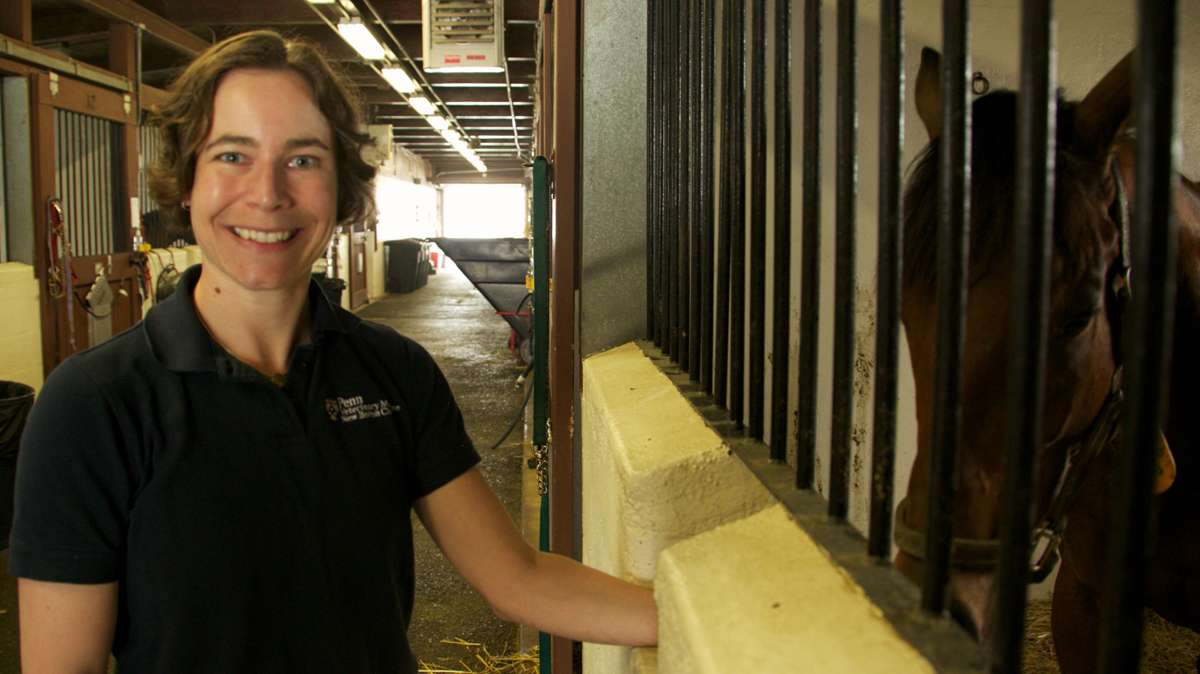
-

Now in its 118th year, the Devon Horse Show is underway in Devon, Pennsylvania. One of this year’s participants has beaten long odds to make the show, overcoming a typically terminal cancer diagnosis along the way.
I met Calvin earlier this week at Peace by Piece Farm in Chester Springs, where he also boards.
At just over 16 hands, Calvin is a sturdy Thoroughbred with sharp eyes and a good nature, if a bit high strung.
A natural athlete, the 11-year-old horse spent his younger days racing. But his talent was raw and unrefined, says his trainer, Diane Little.
“He just really liked to go,” she says. “You know, he had a ‘go’ button, and that was his favorite button. His favorite button was the ‘go forward, let’s have fun’ button.”
“When I purchased him, I just wanted a horse,” says Calvin’s owner, Jane Withstandley. “And then when he really showed what a talented jumper he was, then we started competing.”
Withstandley bought the untrained Calvin for just $5,000 and honed him into a show jumper. His show name is Stateside. But earlier this year, Calvin’s competitive career was nearly derailed by grim and unexpected news while under the care of Dr. Amy Johnson, assistant professor of Large Animal Medicine and Neurology at Penn’s New Bolton Center.
“He ended up at New Bolton for an infection in his face,” says Withstandley. “And while he was there, Dr. Johnson asked if she could biospy some suspicious looking nodules. And of course I said yes.”
The biopsy yielded startling results: Calvin had lymphoma.
A model patient
There were three options: Do nothing; put Calvin on a steroid treatment; or administer chemotherapy, which Johnson says carries the best prognosis for long-term survival.
Going with the first two options would be a typical route for most horse owners, says Johnson.
Withstandley, however, decided to pursue the more aggressive chemotherapy. “I really felt as informed as I could be and just felt that it was the right thing to do,” she says.
Johnson says it’s rare for an owner to opt for chemo. “This is the first case that I’ve treated with a similar protocol here,” she says. “I knew of a case during my previous training, but it wasn’t my own. So, a horse here, a horse there, across the world, but there really haven’t been a lot of horses treated with a full multi-drug protocol like this one.”
Part of the reason is cost. Johnson says a course of chemo costs about 10 times as much as a steroid treatment. But it’s not a new development. In fact, Johnson says the drugs are basically the same ones used for people.
Calvin started his chemo treatments in March of this year at New Bolton. While Johnson was unsure exactly what to expect, she says Calvin was a model patient.
“He didn’t bat an eye,” she says. “He went home and his owner has been riding him a little bit more lightly than she might otherwise, but she reports that he’s feeling a hundred percent. And he’s even gone to a couple of horse shows since he started this protocol.”
Learning from the experience
As for the typical side effects that come to mind with chemo — anemia, suppressed appetite, fatigue, nausea and vomiting — Johnson says they’re not typical for horses.
“Horses actually physically can’t vomit,” says Johnson, “so that’s not something that we see, although they can show signs of abdominal pain. That’s something that we’ve been watching for closely. Haven’t seen him show any signs of discomfort.”
Calvin and Withstandley will compete in the adult jumping event on Sunday and Monday at Devon. His treatments will continue for about six more months, but Calvin is already considered to be in remission. As for his long-term prognosis, Johnson says that’s difficult to predict since there are so few documented cases of horses undergoing a full course of chemotherapy.
“You know, it’d be really nice to gather follow-up data on all of the horses that have been treated with this protocol or a similar protocol,” she says. “Because nobody’s done that yet, really, to find out how long these horses live and what the true prognosis is, and I think that would really help owners who are considering pursuing this type of treatment for their horse. Since we diagnosed Calvin here, we actually now have a second horse that we’re treating with virtually the same protocol with the help of his regular veterinarian.”
Withstandley says he’s shared her story and has found a small community of horse owners facing a similar choice.
“I know how scary it is, and they want to hear that my horse is okay, that my horse is doing well, that he’s happy, and it’s working,” she says.
Back in his stall, Calvin awaits his big moment in blissful ignorance of his condition or the lengths his owners have gone to care for him. But Withstandley isn’t waiting for a thank you.
“[I] definitely feel relief,” she says. “I guess what struck me most is that … at the same point in time, I’m going through one of the worst experiences I’ve ever had with respect to horses and one of the best, which is qualifying for the Devon Horse Show.”
WHYY is your source for fact-based, in-depth journalism and information. As a nonprofit organization, we rely on financial support from readers like you. Please give today.

